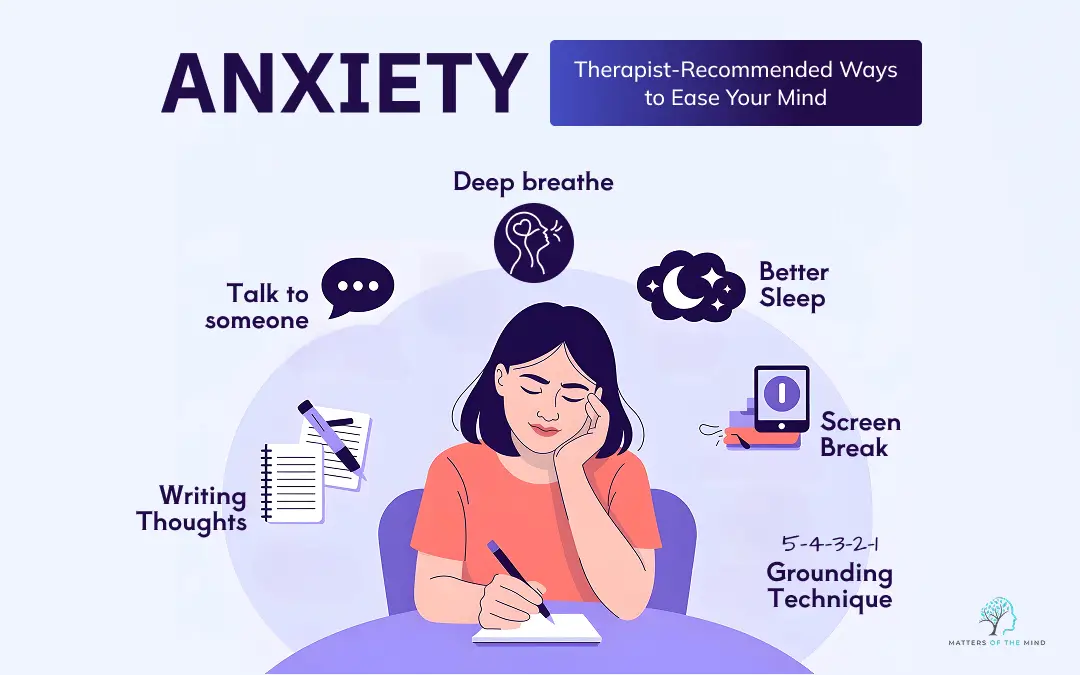Tips to Overcome Anxiety
1. Breathe Slowly and Gently
When we’re anxious, we tend to take quick, shallow breaths. This can make us feel even more panicked. Deep breathing tells your body, “You’re safe.” Breathe in through your nose for 4 seconds, hold for 2 seconds, and breathe out through your mouth for 6 seconds. Repeat this a few times. It helps calm your mind and body.
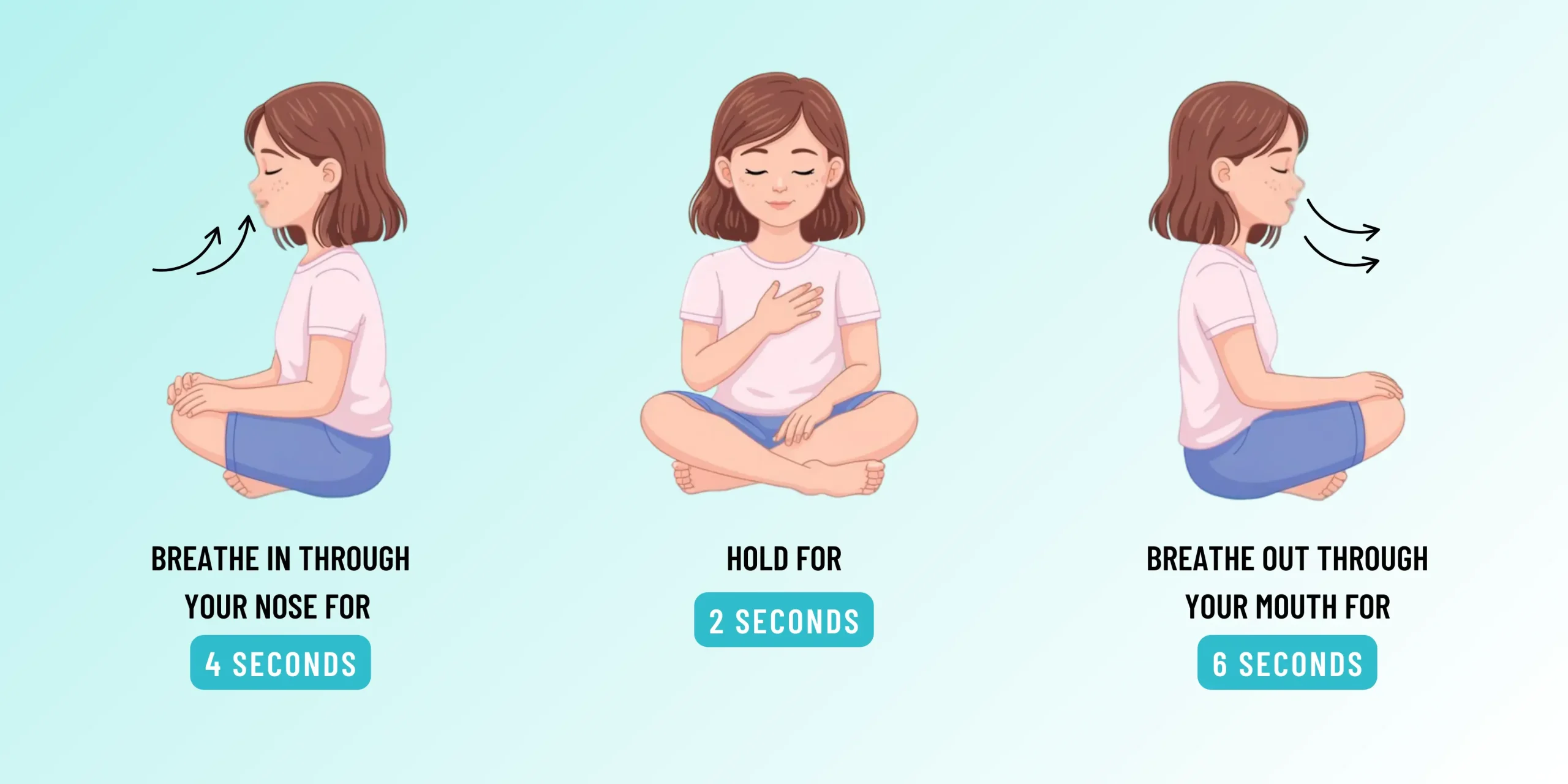
2. Talk to Someone You Trust
Anxiety can feel like carrying a weight no one else can see. When we keep everything inside, our worries often grow bigger and more intense. But talking to someone, a friend, family member, partner, or even a colleague, can bring a sense of relief. You don’t need to have the perfect words or a full explanation. Just starting the conversation can help you feel less alone in what you’re going through.
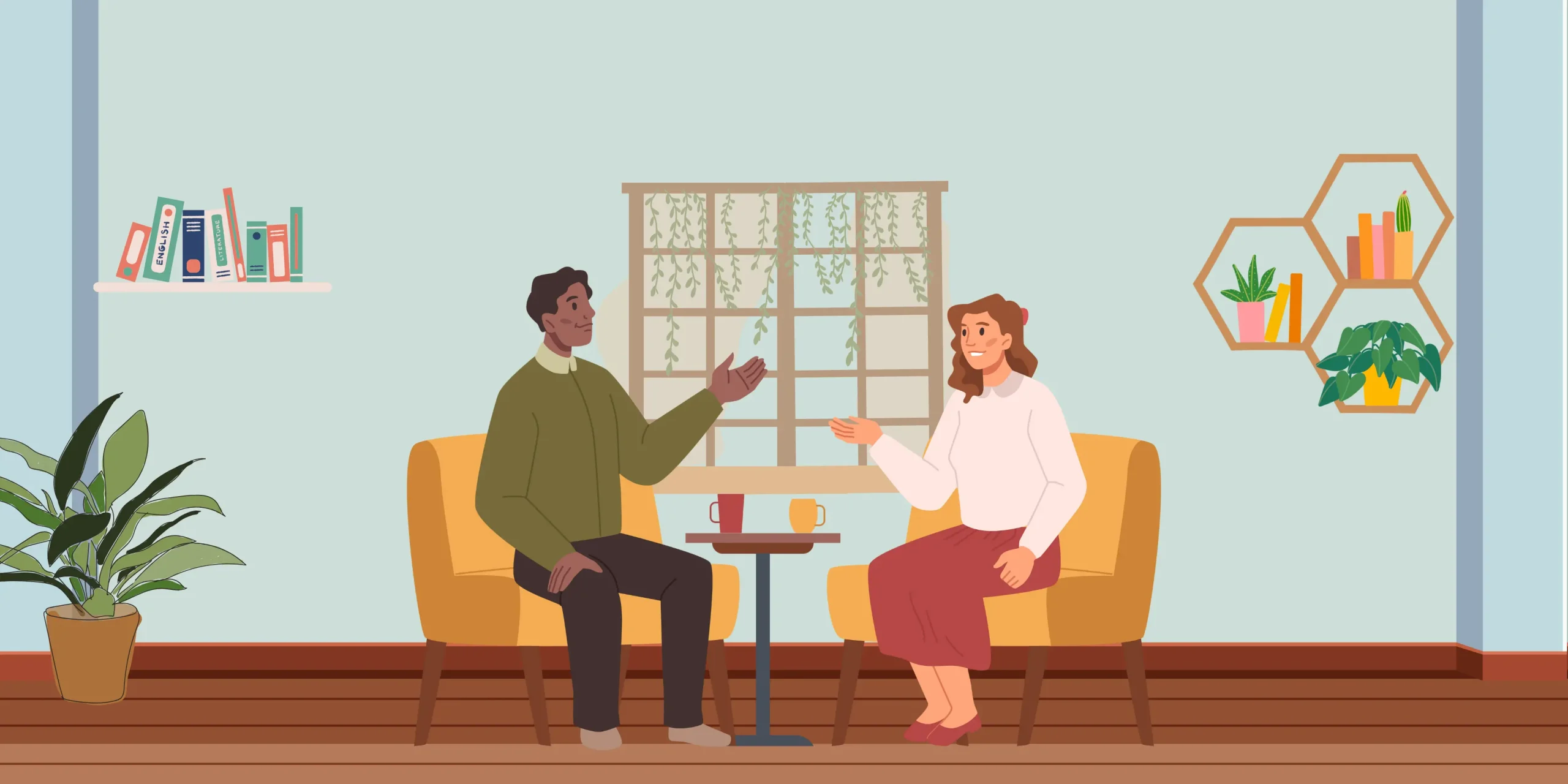
3. Write Down Your Thoughts
Keep a journal and at the end of the day, jot down what’s been on your mind, what made you feel anxious, or even a few things that went well. Over time, this simple habit can help you process your emotions and gain perspective.

4. Take Breaks from Screens
Taking intentional breaks from screens can help you reconnect with yourself and your surroundings. Set a gentle reminder to pause from your phone or computer a few times a day. Even a short 15-minute break can help your mind reset and feel calmer. It’s a small step that makes a big difference.
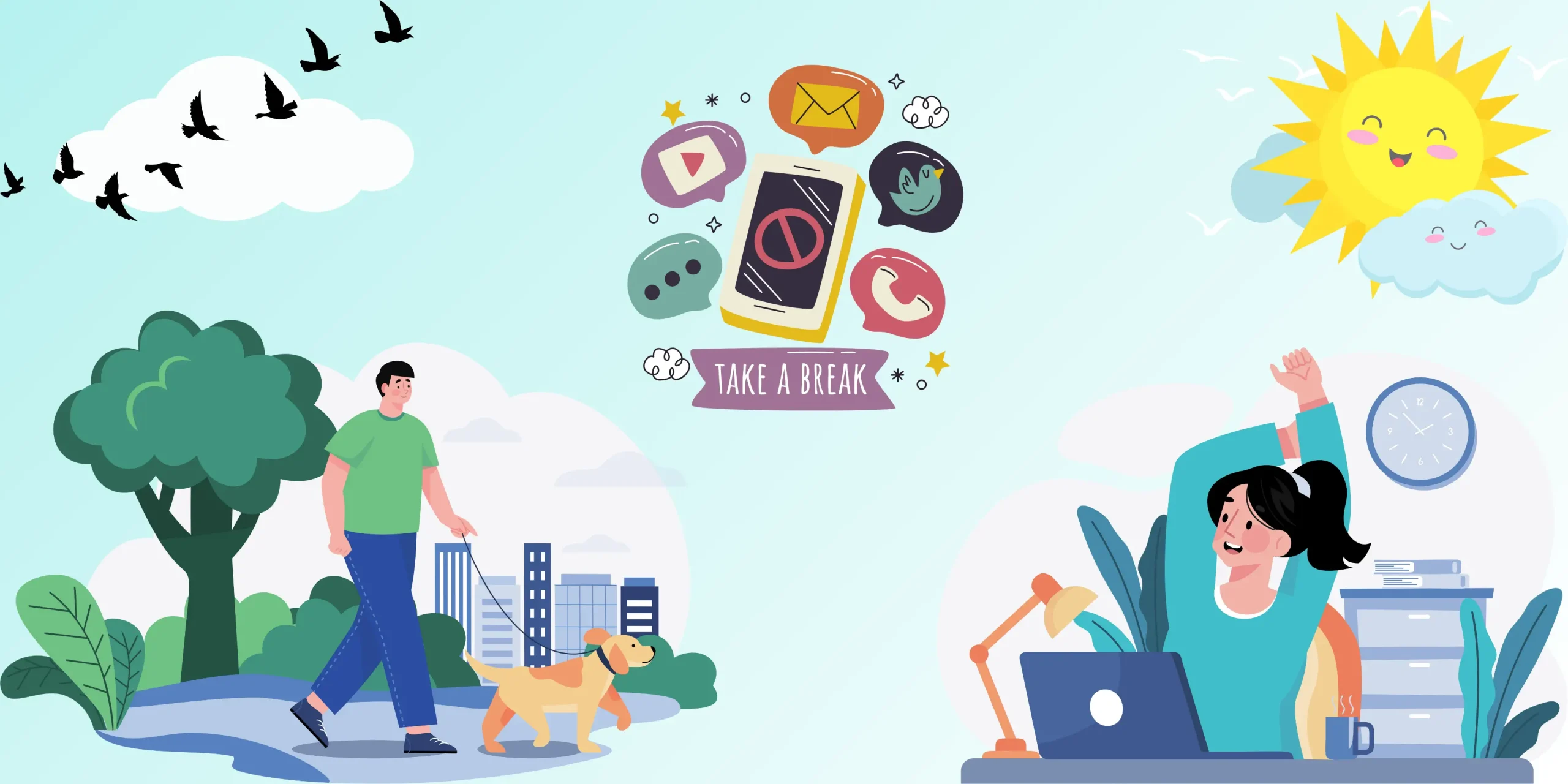
5. Stay in the Present Moment
Practice the 5-4-3-2-1 grounding method when you feel overwhelmed:
- 5 things you can see – Look around and name them out loud or in your head.
- 4 things you can touch – Notice the texture of your clothes, a chair, or even the ground beneath your feet.
- 3 things you can hear – Listen closely. Can you hear birds, traffic, or the hum of a fridge?
- 2 things you can smell – Notice scents in the air or something nearby like coffee, flowers, or even soap.
- 1 thing you can taste – Take a sip of water, a mint, or just notice the taste in your mouth.
This technique brings your awareness back to the moment and helps you feel more in control, even during anxious times.
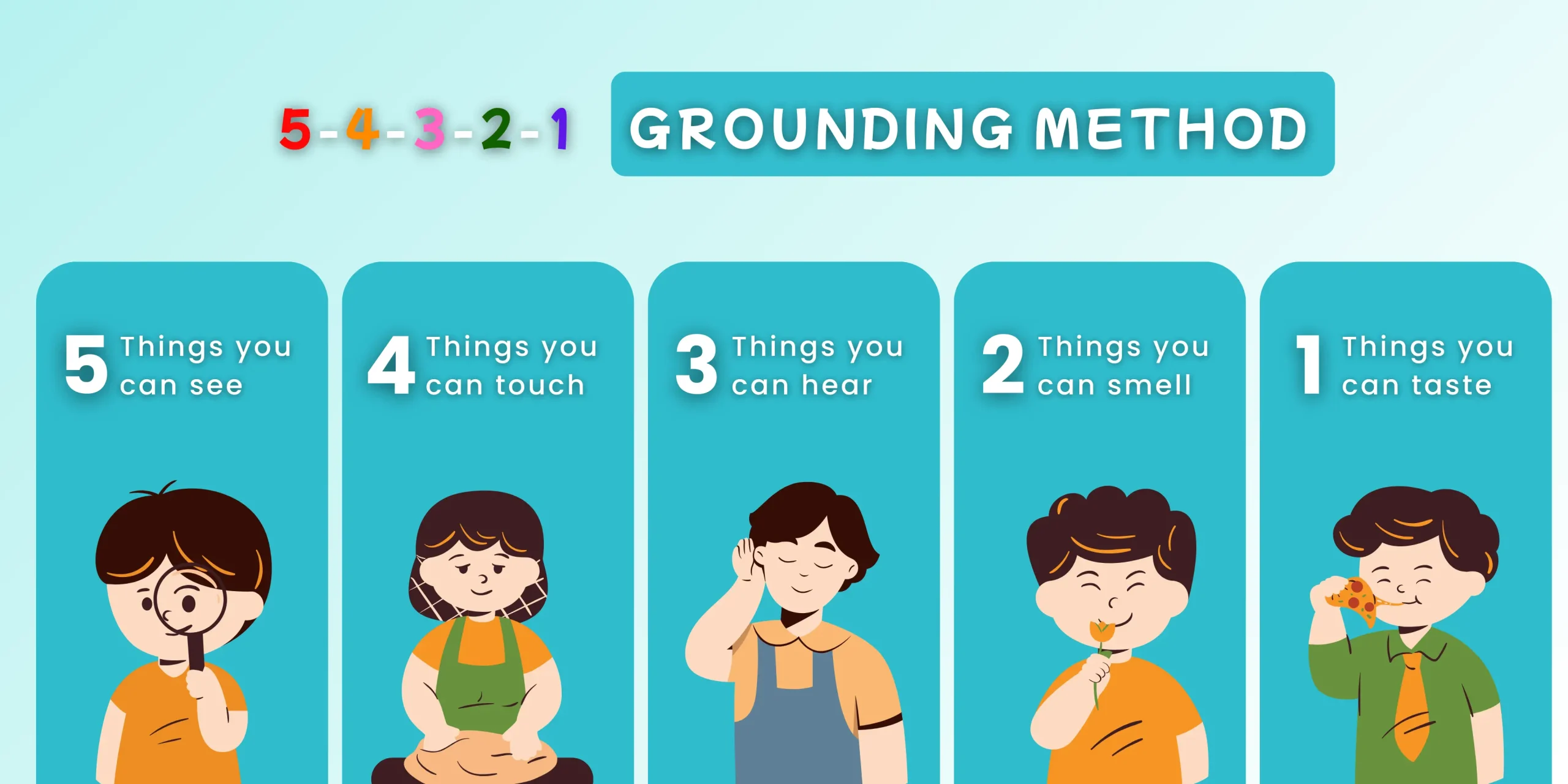
6. Focus on Better Sleep Habits
Improving sleep isn’t about perfection—it’s about creating an environment where your body and mind feel safe to rest. Build a gentle bedtime routine to help signal to your brain that it’s time to wind down. Even 20–30 minutes of calm before bed can help your body ease into more restful sleep, which in turn can reduce your anxiety during the day.
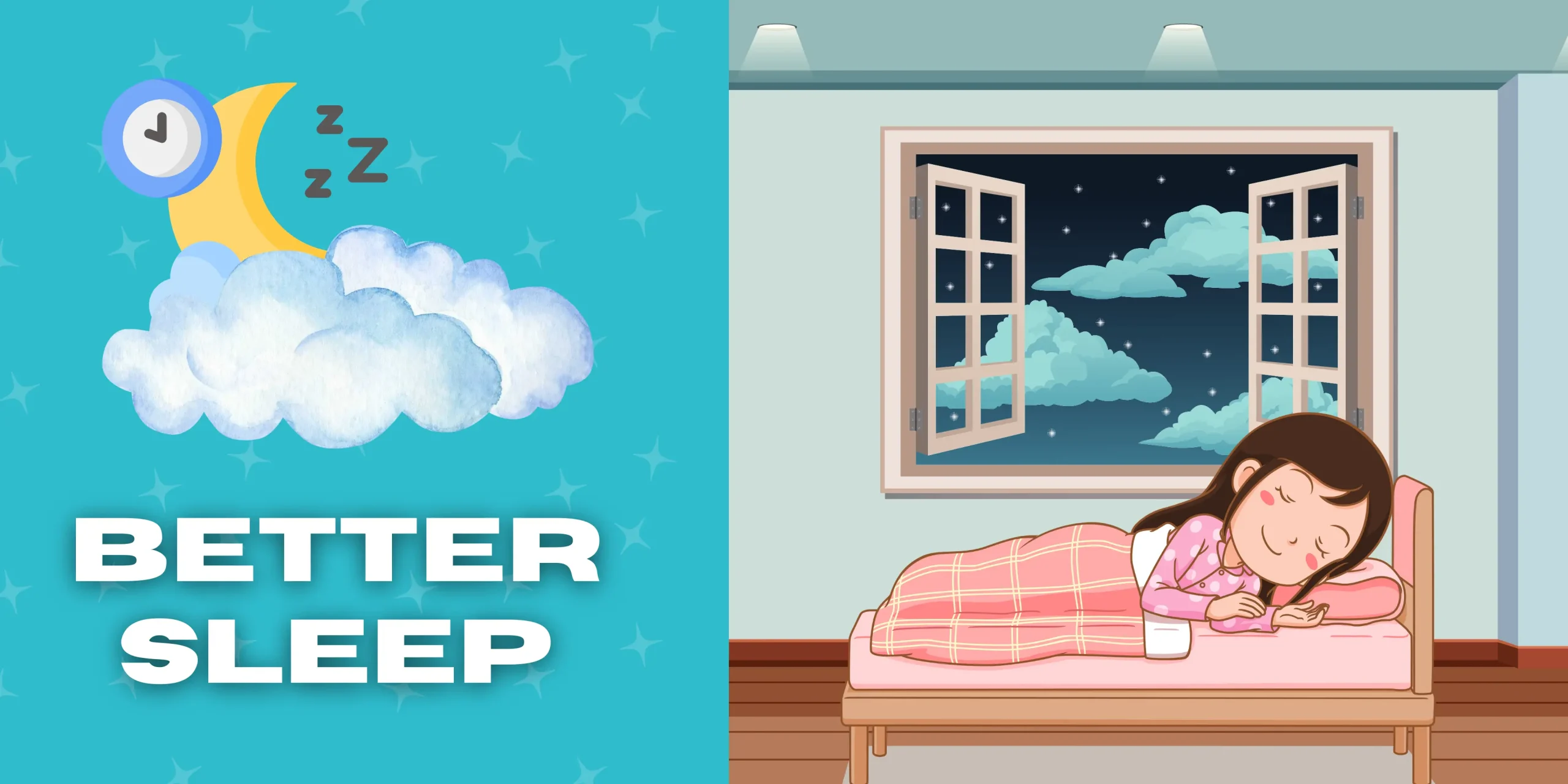
Summing Up
Be kind to yourself along the way. You’re doing your best—and that’s more than enough.
If you’re interested in learning more about anxiety and how it can be managed in everyday life, this guide may help you take that next step.
And if things ever feel too heavy to handle alone, don’t hesitate to ask for help. You’re not alone in this.
Take the First Step Towards Peace of Mind
Connect with Dr Kavita Deepak-Knights, a trusted psychologist helping people manage anxiety and deal with mental stress.
Based in Windsor, Berkshire

